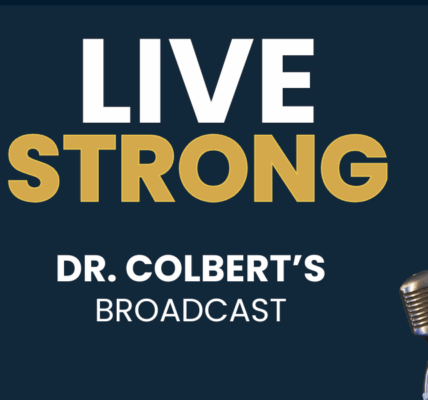Can the foods you eat (or avoid) actually make a difference for seasonal allergies? Amazingly, they can! There are many Keto Zone® foods that promote health through the body. Here are 7 Keto Zone foods that reduce allergy symptoms specifically.
If you are one of the 50+ million Americans who suffer from allergies each year (1), it’s time to do something about it. Here’s how:
7 Keto Zone® Foods that Reduce Allergy Symptoms
1. Raw Cacao and Magnesium-Rich Foods
Magnesium is a mineral that works throughout the body. Thankfully, it may help reduce allergy symptoms and severity.
In fact, a recent animal study found subjects with lower magnesium blood levels exhibited significantly higher histamine levels than those with more magnesium(2). Histamine is an immune system compound that is released in the body during an allergic reaction. It causes inflammation, which can lead to a plethora of reactions including runny nose, congestion, watery eyes, itchy throat, rashes, and more (3).
Additionally, experts believe magnesium opens up and relaxes muscles, including bronchial muscles. This further reduces allergy symptoms and severity.
High magnesium foods include cacao, cashews, kelp, and nuts.
2. Keto Zone Foods High in Quercetin
Quercetin is a naturally occurring polyphenol flavonoid rich in antioxidants. Amazingly, it has antiallergic functions that inhibit histamine production, reduce the immune response, and decrease inflammatory reactions (4)!
If you want to reduce allergy symptoms, choose Keto Zone foods high in quercetin. These include onions, berries, cabbage, cauliflower, garlic and tea.
3. Garlic
In addition to being high in quercetin, garlic and garlic extract have many properties to help reduce allergy symptoms. In fact, studies have found that garlic can help decrease allergic reactions and prevent the production of histamine (5).
What’s more, garlic is highly anti-microbial and supports immune function (6).
It’s easy to add garlic to almost any dish. Or, try slow-roasting it!
4. Apple Cider Vinegar and Spicy Foods
Raw, organic apple cider vinegar has long been a champion of sinus health and reduction in allergy symptoms. Why?
First, it has been found to support immune factors and protect from an allergic reaction (5).
Second, it works as a natural decongestant. This means it causes your sinuses to drain after you consume it.
Similarly, spices and spicy foods work as decongestants and can be consumed alongside apple cider vinegar for a double-dose!
One caveat: ALWAYS dilute apple cider vinegar. Taken straight, it can damage your esophagus. Try 1 tablespoon of apple cider vinegar in 2-4 oz. water. Optionally, add ½ teaspoon ginger, cinnamon, and/or turmeric. Add organic stevia to taste. Take 2-3 times per day during allergy season.
5. Healthy Bacteria and Probiotics
It’s amazing: your gut is linked to almost every health aspect in your body. Brain health, hormone health, and yes, immune and allergy health.
Fermented foods and healthy bacteria (probiotics) can reduce inflammatory responses in the body, thereby reducing allergy symptoms. One recent study of 173 people who suffer from seasonal allergies found that taking a daily probiotic with lactobacillus strains significantly improved their “quality of life” scores from baseline to peak pollen compared to a placebo group. Probiotics increase regulatory T cells to improve allergen tolerance (6).
To add probiotics and healthy bacteria to your diet, try plain greek yogurt, kefir, kombucha, kimchi, Probiotic Supplements and Divine Health® Fermented Green Supremefood®.
6. Foods High in Omega-3s
To reduce allergy reactions, it’s important to reduce chronic inflammatory responses in your body. Studies have shown that those with seasonal allergic reactions and asthmatic allergies actually have higher underlying inflammation even when they are not showing symptoms (7).
To reduce inflammation, increase your intake of foods high in omega-3 fats while decreasing pro-inflammatory omega-6 fats.
How?
First, increase omega-3s by eating:
- Fatty fish and seafoods
- Colorful vegetables
- Ginger and Turmeric
- Seeds like chia seeds, flaxseeds, and hemp heart seeds
- Omega-3 Supplements such as Dr. Colbert’s Wild Alaskan Salmon Omega-3 Supplements
Then, avoid highly inflammatory processed foods. Avoid foods and drinks high in sugar, refined grains, and cheap oils such as soybean oil.
7. The #1 Sinus Health Supplement
There’s an amazing supplement you can add to your diet to support sinus health and reduce allergy symptoms. It includes vitamins, amino acids, anti-inflammatory compounds and more!
In fact, Dr. Colbert’s Healthy Sinus Formula contains quercetin, bromelain, glutathione, and stinging nettle to reduce allergy symptoms, promote sinus health, and support mucus membranes without drowsiness.
It’s a great first line of defense this allergy season. Don’t wait – try yours today!
Bottom Line: Reduce Allergy Symptoms
The foods you eat make a difference when it comes to allergy symptoms. Will this be the year you reduce yours? Try our 7 Keto Zone foods that reduce allergy symptoms, including Dr. Colbert’s Healthy Sinus Formula, and feel great this season!









